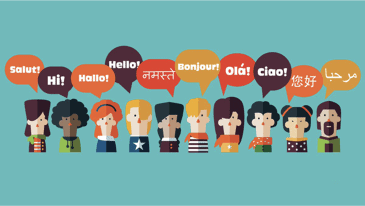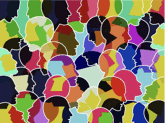June 1st, 2018

Yesterday, a male applicant from Mexico in his mid-50’s stopped by the office to drop off his documents. I overhead him speaking with a couple of our evaluators in Spanish. He had studied communications at the university and worked as a journalist for TV and print media in Mexico. I walked over and introduced myself, in Spanish. The life of a journalist or “periodista” in Mexico is hazardous, in fact, deadly. Outside of conflict zones, Mexico takes the No. 1 spot for journalists murdered in 2017. We spoke more about the dangers of being a journalist and how much he loved what he did but he also valued his life and the need to protect his family. He told us that he heads a professional association for “periodistas” who have been driven out of Mexico after either receiving death threats or seeing the writing on the wall before the grim inevitable was to pay them a visit.
English Only Scare Tactics

Lately, the news chatter here in the U.S. is about citizens, tourists, visitors being harassed for speaking a language other than English. It’s what happens when a person reacts out of fear, out of ignorance, and I mean ignorance as in the not-knowing, or willfully choosing not to take the time to know and educate oneself. It brings out the ugly, the racist, the xenophobe in the person.
Embracing Multilingualism

At, ACEI, we pride ourselves on being polyglots. We have native and non-native speakers of Spanish, French, German, Arabic, Farsi, Armenian, Russian, Italian, Moldovan, Croatian, Chinese, Turkish, and what we like to call “credentialese”. Our applicants appreciate our multilingualism and it is also good practice for those of us who don’t get to use their French, German, or whatever second or third foreign language it was we’d studied in college.
The expression on our Mexican applicant’s face was of pure joy when he heard not one but three people in our office who are not all native speakers of Spanish speaking to him in his native tongue, some haltingly, and some effortlessly. But everyone made the effort and that is how we learned about him and his plight. He, in turn, felt welcomed and more importantly, safe.
We don’t need to limit ourselves to speaking one language when engaging with people. We can keep English as our primary accepted language to conduct our business, but we need not feel afraid to switch to another language if we choose to do so. I don’t want to be intimidated or harassed when I chat in Armenian and Farsi interspersed with English with my mother in public, or French, or Spanish with an out of town friend or visitor.
Multilingualism and Brain Evolution

Each day, studies show how knowing more languages is good for our overall mental health. As noted in a BBC report, most people in the world speak more than one language, suggesting the human brain evolved in multiple tongues. The human brain has evolved to be multilingual. I don’t claim to be a scientist, but I’ll hazard a guess that embracing monolingualism isn’t good for our brain; it impedes our brain’s evolution.
We need to put the ugly back inside the bottle load it into a space capsule and shoot into a galaxy far, far, and away.

Jasmin Saidi-Kuehnert
President & CEO, Academic Credentials Evaluation Institute, Inc. (ACEI)
President, Association of International Credentials Evaluators, Inc. (AICE)
Chair, International Education Standards Council (IESC), AACRAO

The Academic Credentials Evaluation Institute, Inc. (ACEI), was founded in 1994 and is based in Los Angeles, CA, USA. ACEI provides a number of services that include evaluations of international academic credentials for U.S. educational equivalence, translation, verification, and professional training programs. ACEI is a Charter and Endorsed Member of the Association of International Credential Evaluators. For more information, visit https://acei-global.org/.


